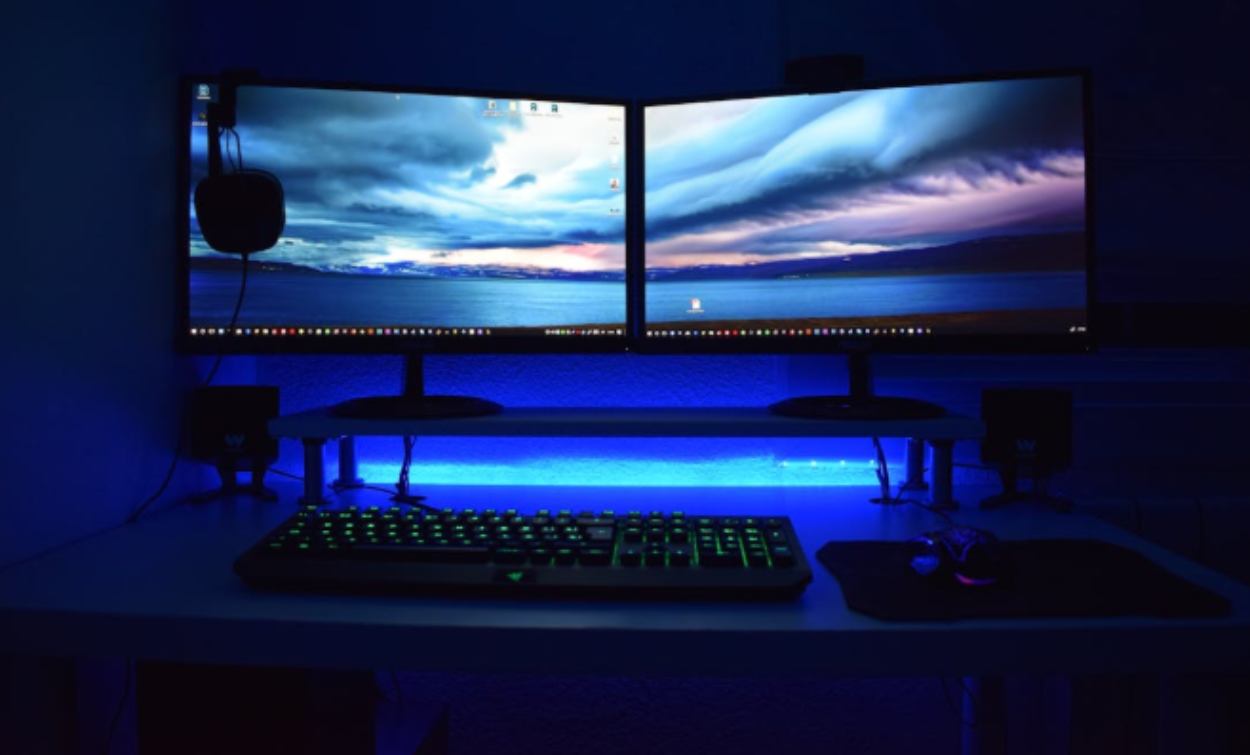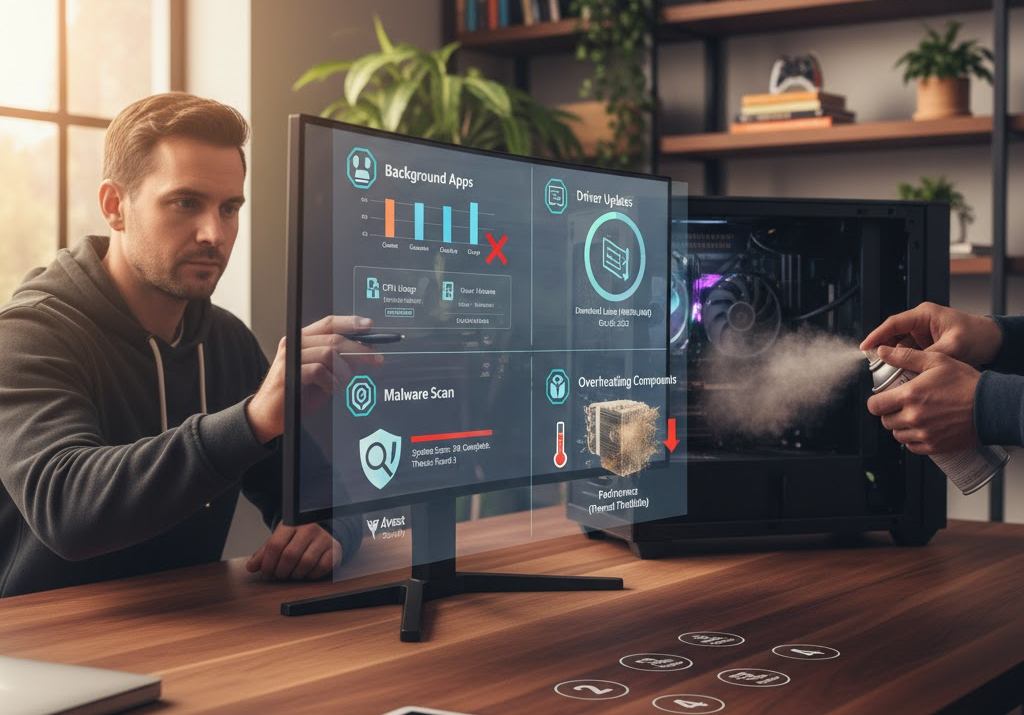Reasons Why Your Gaming PC is Suddenly So Slow

It’s a familiar nightmare for any PC gamer. Your rig, once a beacon of high frame rates and instant response times, suddenly feels like it’s wading through mud. Games that ran perfectly just last week are now a slideshow of stutters and freezes. This kind of sudden performance drop is maddening, and it’s easy to assume your expensive hardware is on its last legs. Before you start pricing out a new graphics card, take a breath. The problem is often rooted in software clutter or basic maintenance that you can resolve on your own.
Too Many Cooks in the Kitchen: Background Apps
Your first suspect should always be the crowd of applications running silently in the background. Every program you install, from game launchers to voice chat and cloud sync services, wants a piece of your PC’s attention, and many set themselves to launch automatically when you boot up. Together, they can siphon off a surprising amount of CPU power and RAM, leaving your games starved for resources.
Become a detective for a moment. Open your Task Manager by pressing Ctrl+Shift+Esc and scrutinize the “Processes” list while no game is running. You might be shocked at what’s consuming your memory. Then, click over to the “Startup” tab and be ruthless. If a program isn’t essential for your system to function, disable it from launching automatically.
Your Graphics Card is Speaking an Old Language
Think of a graphics driver as the instruction manual your games use to communicate with your GPU. When new games are released or existing ones are updated, they often use new visual techniques and optimizations. If your driver is old, your GPU won’t fully understand what the game is asking it to do. This miscommunication leads to graphical glitches, poor frame rates, and even crashes. Both NVIDIA and AMD release frequent driver updates packed with performance boosts for new titles. Make it a habit to check for and install the latest driver for your specific card.
Uninvited Guests: Malware and Viruses
Malware doesn’t announce its arrival. It infiltrates your system and acts like a digital parasite, quietly consuming processing power and memory to perform its tasks. That unexplained stutter in your game could be a keylogger recording your inputs or adware phoning home in the background. A sluggish PC is a classic symptom of a malware infection, which can compromise both your data and your gaming experience. A deep system scan from a trusted security program is non-negotiable if you suspect an intrusion. If you need a tool for the job, you can often find an Avast promo code to get comprehensive protection without a significant outlay. Find codes at Cybernews, the cybersecurity experts.
Overheating Components

Your PC’s components generate a tremendous amount of heat when gaming, and the fans and heatsinks are designed to dissipate that heat. Over time, however, they get choked with dust, pet hair, and other debris. It’s like forcing your PC to run a marathon while wearing a winter coat. To protect themselves, your CPU and GPU will automatically slow down, a process called thermal throttling, which directly kills your in-game performance. The fix can be surprisingly satisfying: open up your case and give it a thorough cleaning with compressed air. Blasting the dust out of your GPU fans and CPU cooler can give your machine a new lease on life.
Getting Back in the Game
A sudden performance drop is alarming, but it’s rarely a death sentence for your hardware. More often than not, the problem lies in the digital clutter and physical dust that accumulate with use. By taking a systematic approach, you can usually restore your PC’s speed and return to the smooth gaming you paid for.
Conclusion
A sudden slowdown in your gaming PC can feel catastrophic, but most of the time, it’s not a sign of failing hardware. More often, the culprit lies in background programs hogging resources, outdated drivers, hidden malware, or overheating components. Regular maintenance — both digital and physical — can significantly contribute to keeping your system running at peak performance. By staying proactive with software updates, system scans, and periodic cleaning, you can prevent performance drops and enjoy a smoother, more reliable gaming experience.
References
- NVIDIA – Download GeForce Drivers
- AMD – Drivers and Support
- Microsoft – How to Use Task Manager in Windows
- PC Gamer – How to Clean Your PC Without Breaking It
